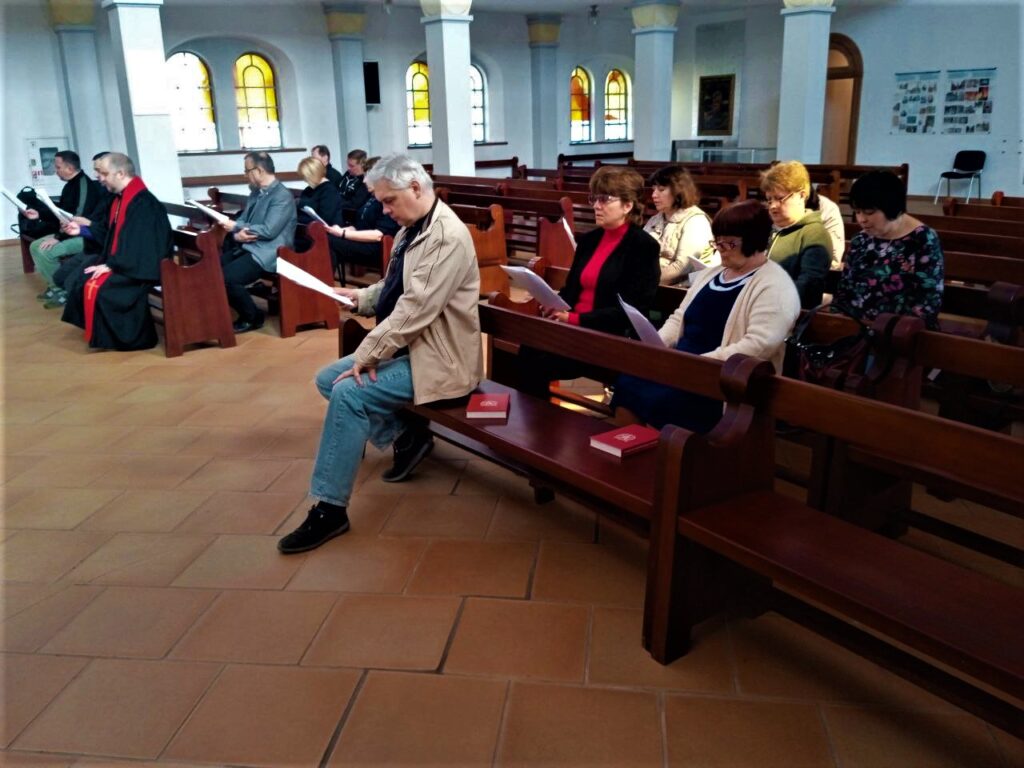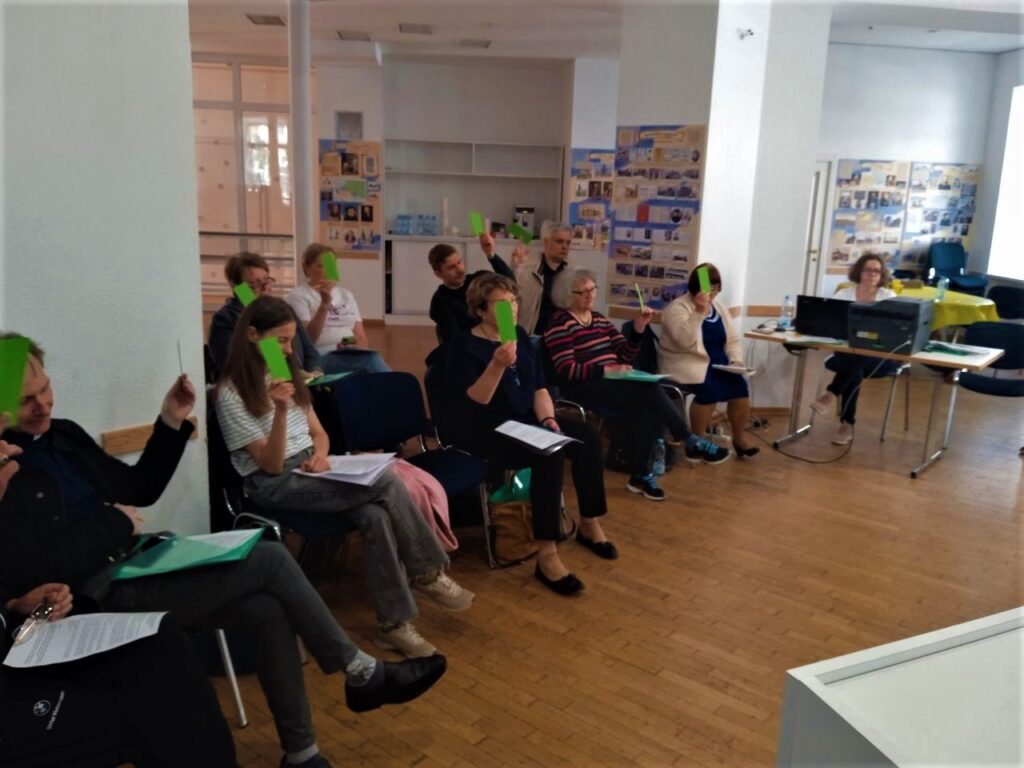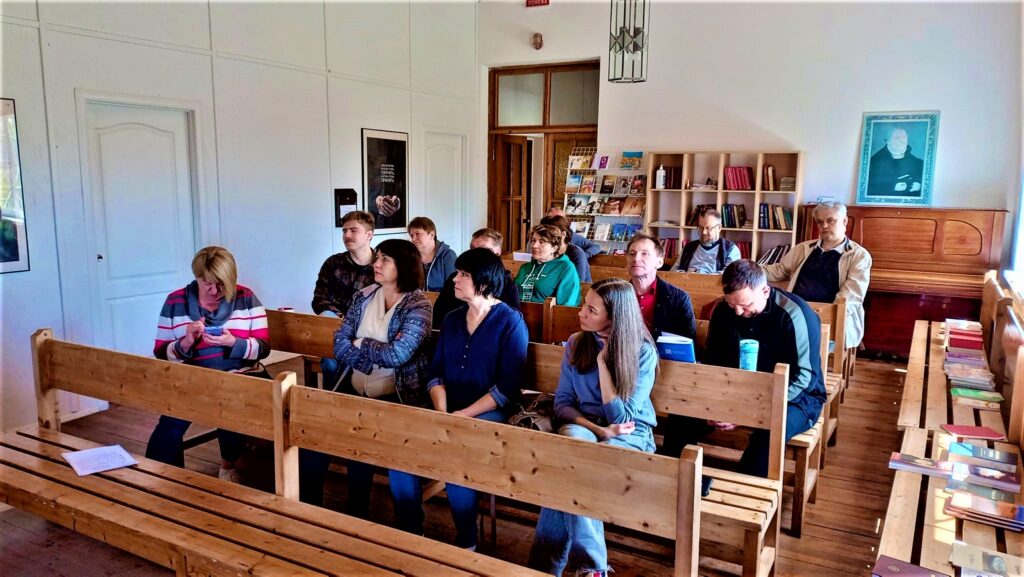According to the new edition of the Constitution of GELCU, congregations are represented at the Synod exclusively by the presidents of Councils. Therefore, it made sense to combine the regular Synod meeting and the conference for the presidents of congregations’ Councils. In total, the presidents of Councils (or legally approved proxy representatives) of 17 congregations were present at the Synod and conference. GELCU consists of 24 congregations.

The Synod was held on June 5 on the premises of the church center in Odesa. It began with a solemn worship service in St. Paul’s Lutheran Church conducted by Bishop Pavlo Shvarts. In his sermon, he reminded the participants of the Synod that no one is and cannot be a savior for others. The real task of the Church is to lead people to their true Savior – Jesus Christ.
Rev. Michael Hübner, the General Secretary of the Martin-Luther-Bund, was the guest of honor at the Synod. This organization was founded to help the Lutheran churches of the German tradition outside of Germany and has been a partner of GELCU for many years. After the service, Pastor Hübner gave a short speech of greeting. He mentioned many difficult pages in the history of the Church in the 20th century, but at the end, he reminded those present: “As a Synod, it is your privilege to participate in the future that God gives through His Son Jesus Christ. You are members of the Body of Christ, the Church, which bears witness to Jesus not only through faith and love but also through hope for the future!”
The Synod meeting was held in the large hall of the Pastor’s house on the territory of the church center. This hall is currently hosting Oleksandr Surilov’s exhibition “Heritage of the Black Sea Germans”. On the agenda were mostly reports and solving legal issues. Also, the Synod adopted a new provision for the preaching ministry taking into consideration modern realities and the experience of the Church.
The next day, the presidents of Councils of congregations gathered for the conference in the church center of the Petrodolynske village in the Odesa region. An important part of the program was a study of the letter of the Apostle James in small groups. The participants shared about the situation in their congregations and informed the possibilities of improving congregational work and the development of the ministry.











